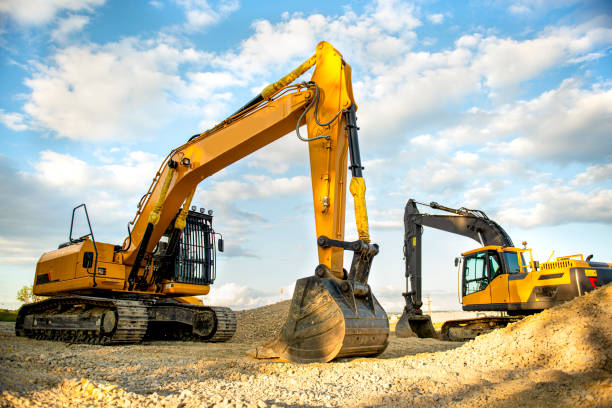Choosing the right excavator for your project can significantly impact the efficiency and effectiveness of your work. Whether you are a contractor managing a large construction site or a homeowner taking on a small landscaping project, understanding the different types of excavators available and their specific uses is essential. With the option of excavators for hire, the process becomes more accessible, but you still need to make informed choices. Here’s a guide to help you select the right excavator for your needs.
1. Assess the Project Requirements
The first step in choosing the right excavator is to assess the specific requirements of your project. Consider factors such as the type of work you need to accomplish, the size of the site, and the soil conditions. Are you digging trenches for utilities, clearing land for a new building, or performing precise landscaping tasks?
For larger projects, a standard excavator may be suitable, while mini excavators are often ideal for smaller, confined spaces. Evaluating the scope of your project will help you determine the size and type of excavator needed.
2. Understand the Types of Excavators
Familiarize yourself with the different types of excavators and their primary functions:
- Standard Excavators: Best for large-scale operations like digging foundations and grading land.
- Mini Excavators: Great for tight spaces, often used in residential projects.
- Compact Excavators: A versatile option for moderate-sized projects that require mobility.
- Wheeled Excavators: Ideal for hard surfaces, offering excellent mobility across sites.
- Long Reach Excavators: Designed for deep digging or working in areas that require extended reach.
- Hydraulic Excavators: Highly adaptable with various attachments for different tasks.
Understanding these types will guide you in making an informed decision based on your project needs.
3. Evaluate Site Conditions
Site conditions play a crucial role in determining which excavator to hire. Consider the following:
- Terrain: Is your site flat, hilly, or uneven? Tracked excavators offer better stability on rough terrain, while wheeled excavators are more suitable for flat, paved surfaces.
- Access: Can the excavator easily maneuver in and out of the site? Mini or compact excavators may be more appropriate for sites with limited access.
- Space Constraints: If your project is in a tight area, a mini excavator may be the best choice due to its smaller footprint.
By thoroughly assessing these conditions, you can choose an excavator that will operate efficiently in your specific environment.
4. Determine the Required Digging Depth and Reach
Different excavators have varying capabilities regarding digging depth and reach. If your project requires deep digging, a long reach excavator may be necessary. For shallow trenches, a standard or mini excavator could suffice.
Check the specifications of the excavator options you’re considering to ensure they meet your project’s requirements. Knowing how deep and wide you need to dig will help you select an excavator with the appropriate capabilities.
5. Consider Attachments and Versatility
Excavators are often equipped with various attachments that enhance their functionality. Common attachments include buckets, augers, hydraulic hammers, and grapples. When choosing an excavator, consider what attachments you might need for your project.
For example, if you need to break up concrete, look for a hydraulic hammer attachment. If you plan on digging and moving materials, ensure the excavator can accommodate different bucket sizes. Many rental companies offer excavators for hire with a range of attachments, allowing you to customize your equipment for the task at hand.
6. Analyze the Budget
Your budget is a critical factor in choosing the right excavator. While purchasing a new machine can be costly, renting excavators for hire can provide a more economical solution for short-term projects. Consider not only the rental cost but also any additional expenses, such as fuel and maintenance, which can impact your overall budget.
When renting, compare prices from different suppliers to find the best deal while ensuring you are getting quality equipment. Sometimes, paying a slightly higher rental fee can mean access to better-maintained machines.
7. Check Rental Terms and Conditions
Before finalizing your decision on excavators for hire, review the rental terms and conditions. Pay attention to factors like:
- Rental Duration: Are there minimum or maximum rental periods?
- Insurance Coverage: What happens in case of damage or breakdown?
- Delivery and Pickup: Is there an additional fee for delivery to your site?
- Maintenance and Support: What support does the rental company provide if you encounter issues during your rental period?
Understanding these terms can help you avoid any surprises and ensure a smooth rental experience.
8. Seek Professional Advice
If you’re still unsure about which excavator is right for your project, don’t hesitate to seek advice from professionals. Rental companies often have knowledgeable staff who can provide insights based on your project specifics. They can recommend the best excavator type, size, and attachments for your needs.
Conclusion
Choosing the right excavator for your project involves careful consideration of various factors, including project requirements, site conditions, and budget. With the option of excavators for hire, you can access the equipment you need without a significant financial commitment. By following these guidelines, you can ensure that you select the most suitable excavator, ultimately leading to a more efficient and successful project outcome.



